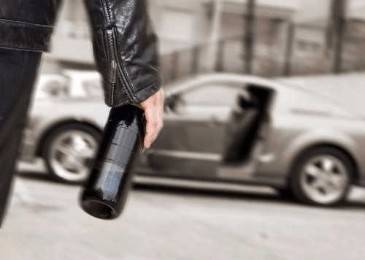Have you been pulled over for a DUI? Learn what to do after you’ve been charged with a DUI in this article, then call our Stillwater lawyers.
 The definition of “driving under the influence” (DUI) varies from state to state, and may be confused with (or synonymous with, depending on where you are) “driving while intoxicated” (DWI). Regardless of the specifics of your charge, they are both very serious offenses and should be handled with a great amount of care. If you find yourself being charged with DUI, here are the steps you need to take.
The definition of “driving under the influence” (DUI) varies from state to state, and may be confused with (or synonymous with, depending on where you are) “driving while intoxicated” (DWI). Regardless of the specifics of your charge, they are both very serious offenses and should be handled with a great amount of care. If you find yourself being charged with DUI, here are the steps you need to take.
- Take the chemical test. Most often, this test measures your blood alcohol content (BAC) to determine the level of your intoxication. Refusing to take it is punishable under law in many states; it’s a required part of the process, and refusing to comply can sometimes immediately mean a guilty charge. Don’t take the risk, take the test.
- Hire a DUI attorney. DUI laws are complex and require an in-depth understanding of their specifics; do not trust your defense to a general attorney. Finding a DUI lawyer may seem like an intimidating part of the process, but choosing one that has a history of success and extensive experience is worth the cost — it could save your record and your license. Don’t hesitate to find a DUI law firm, especially if this is your first offense (when DUIs are their focus, finding a DUI lawyer is extremely straightforward).
- Locate a bail bondsman. Sometimes, posting bail is required after an arrest, although most DUI individuals are released without bail. If you do need to post bail, you can employ the services of a bondsman. They require an up-front fee, but it is usually cheaper than the amount of bail being requested by the court. They also guarantee that you will be at all of your court hearings, and will come looking for you if you do not appear.
- Request a DMV hearing. This hearing, which usually needs to be requested within 10 days of your arrest, determines whether or not you will be able to keep your license. Your attorney may schedule this for you, but if it is not taken care of, your license will be immediately suspended.
- Prepare for your arraignment. The arraignment is a small part of your trial where you enter your plea. Do NOT plead guilty; your attorney will advise you on how to proceed, and many are successful in fighting DUI charges. A plea of not guilty will lead to a jury trial where your lawyer will take over handling all the details.
Each day, around 300,000 people drive drunk, but fewer than 4,000 are arrested — a DUI charge doesn’t mean the end of your life and independence. Success in finding a DUI lawyer, the right DUI lawyer, can ease the stress of the situation and can mean the difference between conviction and redemption.
